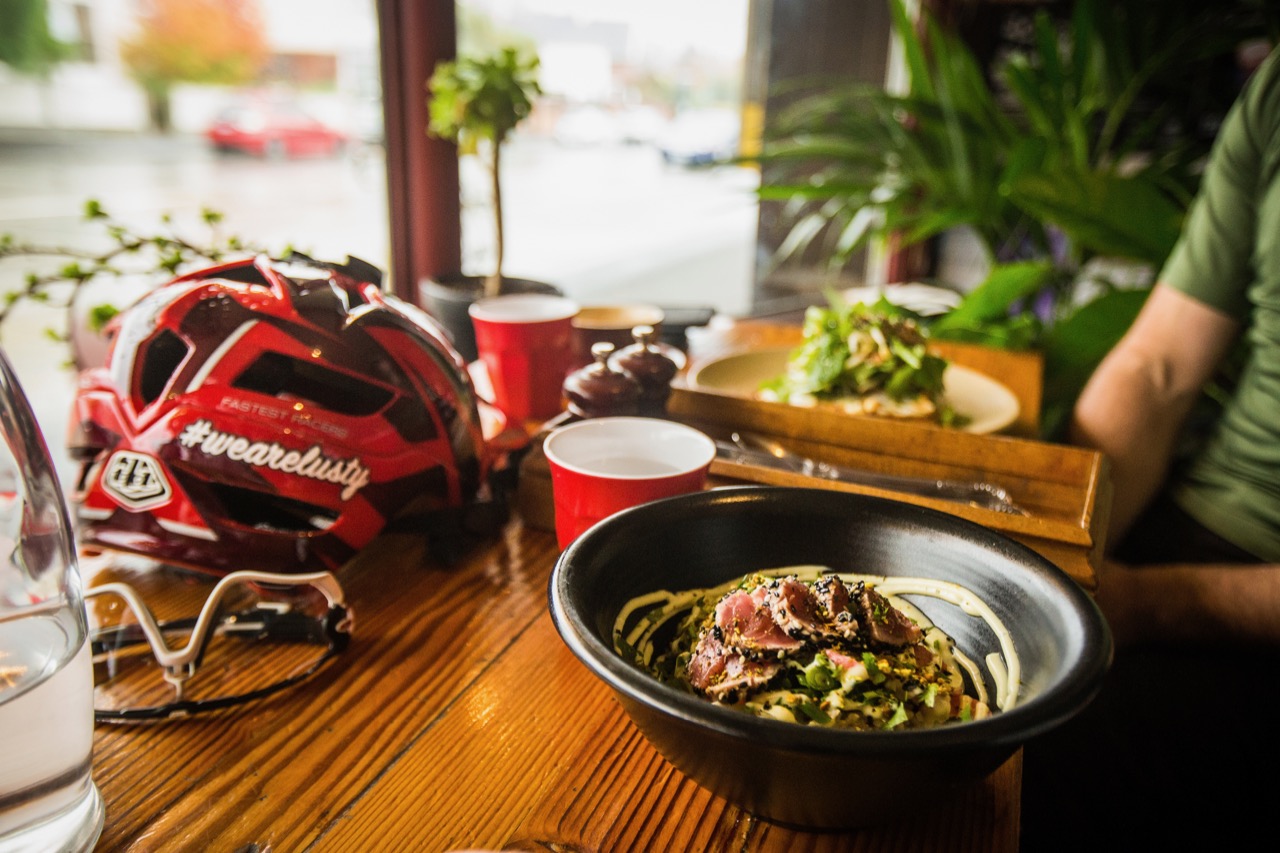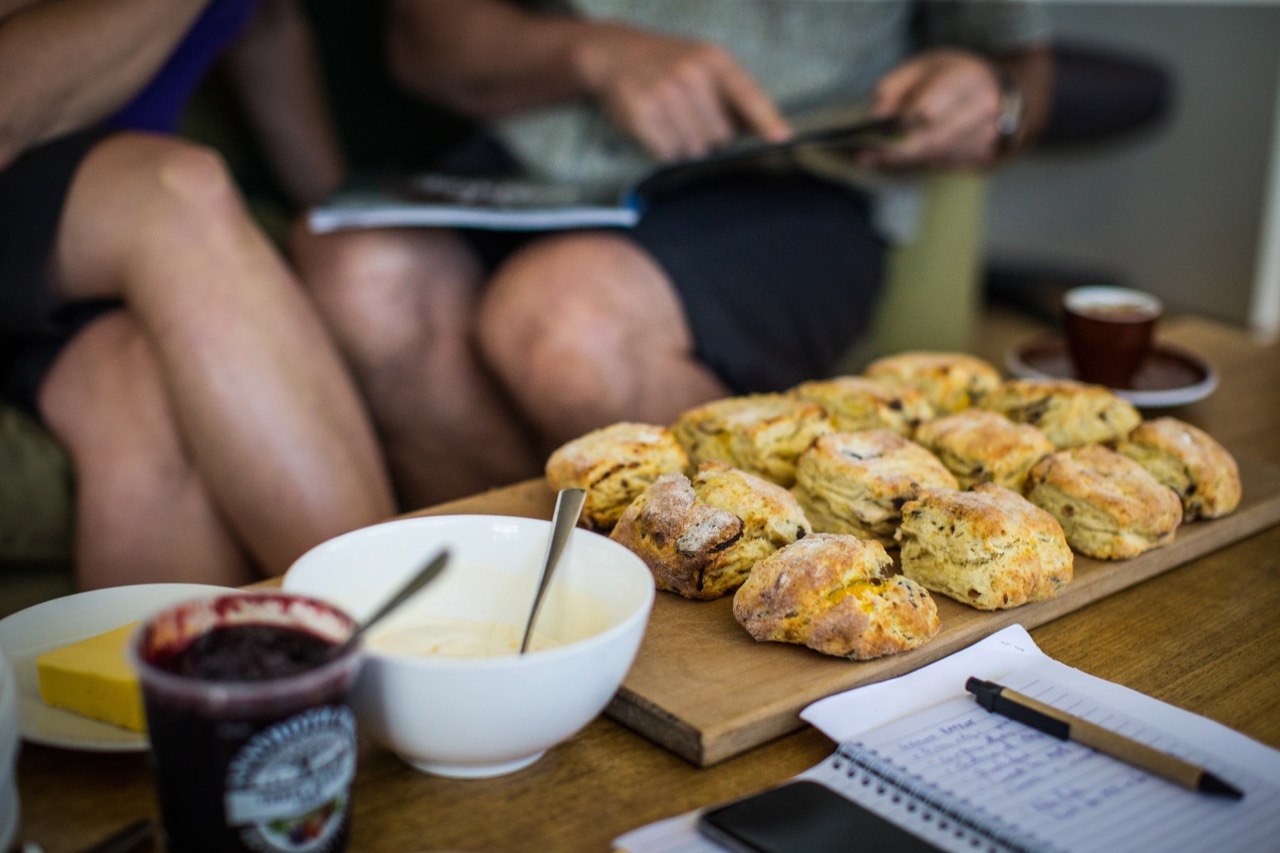Food & mood - the missing link to performance?
Is food linked to mood and therefore performance?
Words: Zoe Wilson Photos: Tim Bardsley-Smith
Heart rate, power, periodisation, efforts, maximising time on and off the bike, strength training, bike handling sessions… These are all things we traditionally think about when discussing improving performance on the bike. We often speak about food, too, but usually for fuelling or recovery or hydration purposes. And sure, they all do play some role in making you faster and stronger. But, do you ever consider your mood and how that might impact your training? And what about how your food might impact your mood? Let’s investigate…
Food and mood – what’s the deal?
You might be surprised to find out there is a strong link between food and mood. In fact, research shows better quality diets are associated with a reduced risk of depression, while diets higher in processed foods are associated with increased depression and often anxiety.
A good quality diet might also help prevent depressive symptoms from becoming clinical depression. In fact, one big study found that in the 4000 participants, there was a strong trend for the prevention of new cases of depression for those adopting a Mediterranean diet with nuts. Another study has found dietary counselling just as effective at preventing the transition to clinically diagnosed depression as psychotherapy.

I hear you ask, “but couldn’t a poor mood cause you to make poorer food choices?”. Maybe… but, at this stage, most studies that have investigated this have largely ruled it out.
There are a few possible reasons for this link. A lack of fibre and other nutrients from fruit, vegetables, wholegrains and healthy proteins like fish can have a negative impact on our gut bacteria and immune system. Also, a diet high in saturated fat and refined sugars (high in processed foods) reduces brain proteins called neurotrophins which protect the brain from damage and promotes the growth of new brain cells. Quite amazingly, research has shown that diet can impact the size of the hippocampus which is the area in the brain responsible for learning, memory and mood. The worse the diet, the smaller the hippocampus and visa versa.
Mood and exercise – what’s the deal?
The link between exercise and mood is much more well researched than the link between food and mood. People who exercise regularly (yes, you!) are less likely to experience depressive symptoms and are less likely to experience episodes of clinical depression. In fact, similarly to food, exercise may be as effective as psychological or drug treatment for some people with depression.
Exercise improves mood in several ways. Exercise increases energy levels, helps you sleep better (also known to improve mood), distracts from negative thoughts and if you train with others, is a great way to connect socially.
Add to this the benefits of riding outdoors. Getting adequate amounts of vitamin D from the sun, and getting in touch with nature has been proven to lift mood, too.

How does the link impact performance on the bike?
Food, mood and training are all intertwined. A poor diet may contribute to a low mood which could then make it harder to train and to improve. A poor diet can also make it difficult to train well if you’re not well fuelled or hydrated for sessions. On the flip side, eating well may improve your mood, making it easier to motivate yourself to train. Proper fuelling can also improve the quality of your training sessions, so you’ll get more out of each ride in terms of performance benefit.
The bottom line?
Don’t underestimate the relationship between your diet, training and mood. Eating poorly or letting training slip may impact your mood which can in turn reduce your performance. This is obviously in addition to the impact diet and training have on performance directly.
The base diet recommended for mood is very close to that recommended for sports performance and general health. Make sure plant foods such as vegetables, fruit, legumes, tofu, wholegrains and raw nuts are the base of your diet; include some fish and lean red meats; and add healthy fats such as olive oil each day. Also be sure to avoid processed foods due to their high levels of saturated fats, sugar, refined grains and additives which may hurt your gut bacteria. If you really want to do your gut a favour, include vinegars like balsamic or apple cider vinegar and fermented foods like kimchi or sauerkraut regularly too!







